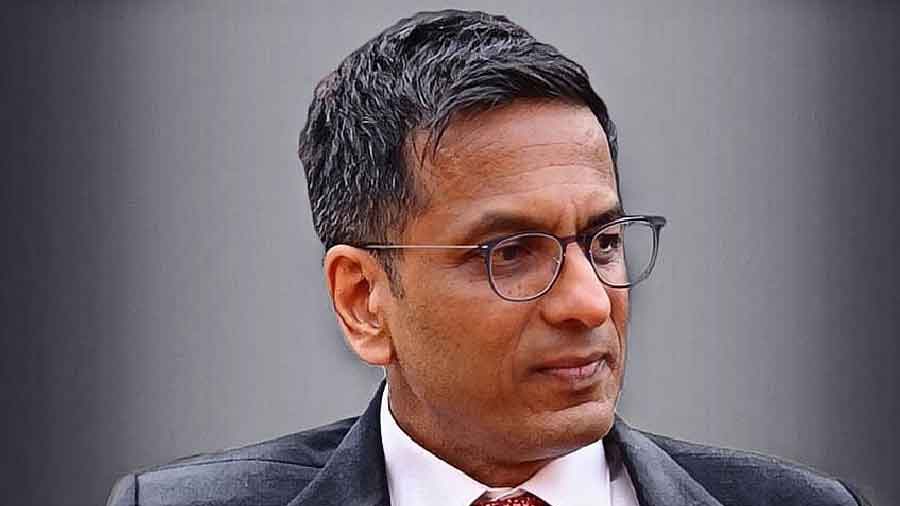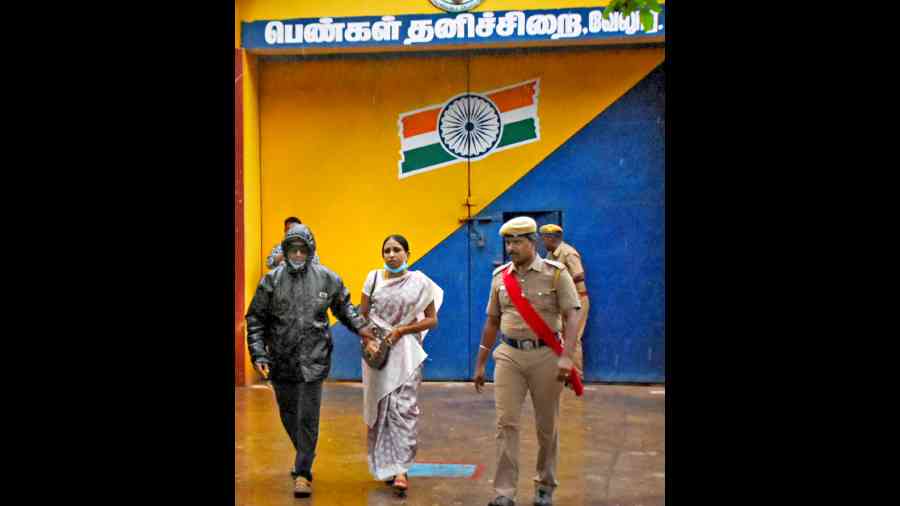
Onus on all to avert law misuse: CJI
We need to understand the limits as well as the potentiality of the courts as institutions, says Justice DY Chandrachud
 |
| CJI D.Y Chandrachud: File Photo |
TT Bureau | New Delhi | 13.11.22 :Chief Justice of India D.Y. Chandrachud on Saturday said it was the responsibility of all decision-makers, not just judges, to ensure that the law did not become an instrument of oppression but remained an instrument of justice.
Justice Chandrachud told the Hindustan Times Leadership Summit that it was great to have the expectations of citizens but “we need to understand the limits as well as the potentiality of the courts as institutions”.
“Sometimes the law and justice do not necessarily follow the same linear trajectory. The law can be an instrument of justice but the law can be an instrument of oppression as well. We know how in colonial times the same law, as it exists in the statute books today, could be used as an instrument of oppression,” he said. “So, how do we ensure, as citizens, that the law becomes an instrument of justice and the law does not become an instrument of oppression?”
“I think the key is the way in which we handle the law, which includes all decision-makers and not just judges,” the CJI added.
What sustains judicial institutions in the long run is the sense of compassion, sense of empathy and the ability to answer the cries of citizens, he said.
“When you have the ability to hear unheard voices in your system, (see) unseen faces in the system and then see where the balance between the law and justice lies then you can truly perform your mission as a judge,” Justice Chandrachud said.
Social media has posed one of the greatest challenges as there is real-time reporting of every little word that a judge says in the courtroom and “you are constantly evaluated as a judge”, he said.
”There is real-time reporting of every word that a judge says in the court. Those of you who are lawyers will be able to tell your colleagues that everything said by a judge during a course of conversation in the court does not reflect either the mind of the judge or the ultimate conclusion that the judge would arrive at,” the CJI said.
”The process of judging that goes on in the courts is dialogic. There is a free-flowing dialogue between lawyers in the court and the judges between themselves in an effort to unravel the truth.”
Justice Chandrachud said that “we live in the era of the Internet and social media which is here to stay”. ”So, I do believe that we need to fashion, re-engineer, find new solutions, retrain, recoup, rethink our role in trying to understand how we meet the challenges of the age we are living in,” he said.
‘Feudal structure’
The CJI said the structure of the legal profession was “feudal, patriarchal and not accommodating of women” and there was a need to have a democratised and merit-based process for the entry of more women and people from marginalised sections of society.
Justice Chandrachud, who took charge as the CJI on Wednesday, said there were numerous challenges before the judiciary and the first among them was that of expectation, as every social and legal matter and a large number of political issues came within the jurisdiction of the Supreme Court.
“One thing which we need to understand is that the judiciary has a feeding pool. The feeding pool which determines who enters the judiciary is largely dependent on the structure of the legal profession,” the CJI said.
“The structure of the legal profession even today across India is feudal, patriarchal and not accommodating of women. So, when we talk of having more women in the judiciary, it’s equally necessary for us to lay the building blocks for the future by creating access to women now. The first step is entering the chambers of senior lawyers, which are an old boys club.
“How do you gain access to chambers by tapping your connections? Until we have a democratised and merit-based access to the entry point in the legal profession, we will not have more women and will not have more people belonging to marginalised sections.”
The CJI said the live-streaming of court proceedings was a new experiment that gave an insight into what technology could do to transform the legal system. He said the proceedings of high courts and district courts should also be live-streamed.


0 Response to "Onus on all to avert law misuse: CJI"
Post a Comment
Disclaimer Note:
The views expressed in the articles published here are solely those of the author and do not necessarily reflect the official policy, position, or perspective of Kalimpong News or KalimNews. Kalimpong News and KalimNews disclaim all liability for the published or posted articles, news, and information and assume no responsibility for the accuracy or validity of the content.
Kalimpong News is a non-profit online news platform managed by KalimNews and operated under the Kalimpong Press Club.
Comment Policy:
We encourage respectful and constructive discussions. Please ensure decency while commenting and register with your email ID to participate.
Note: only a member of this blog may post a comment.